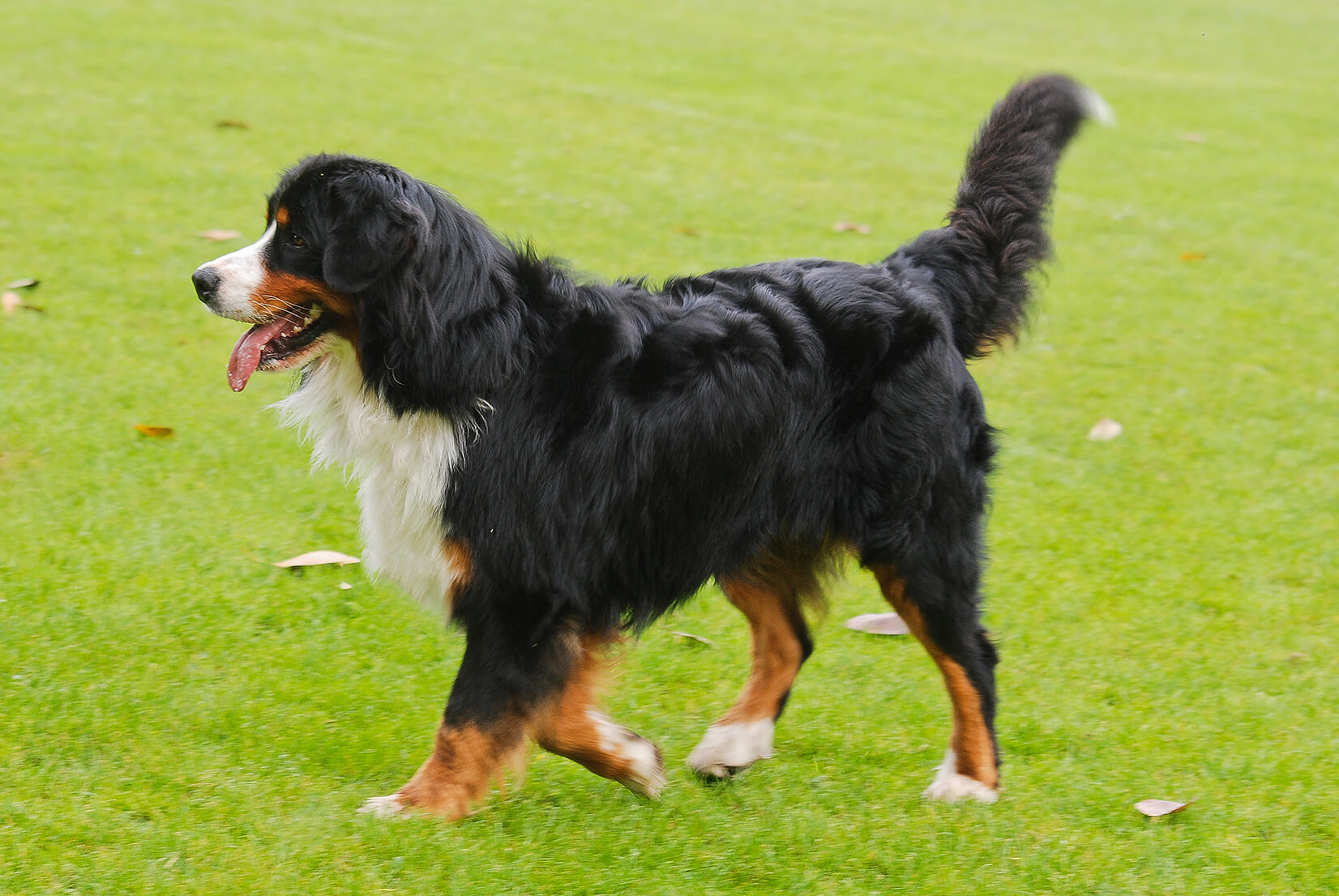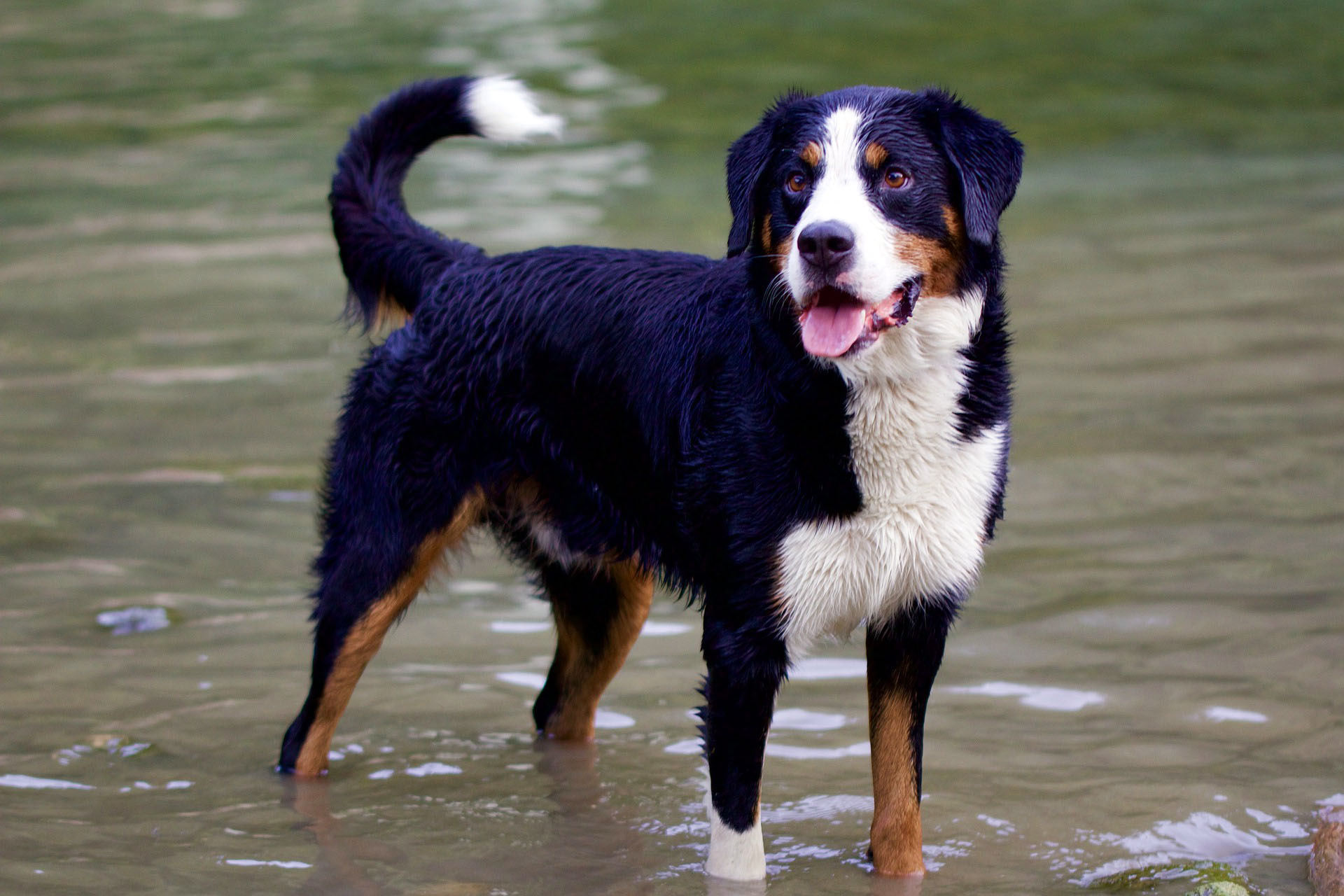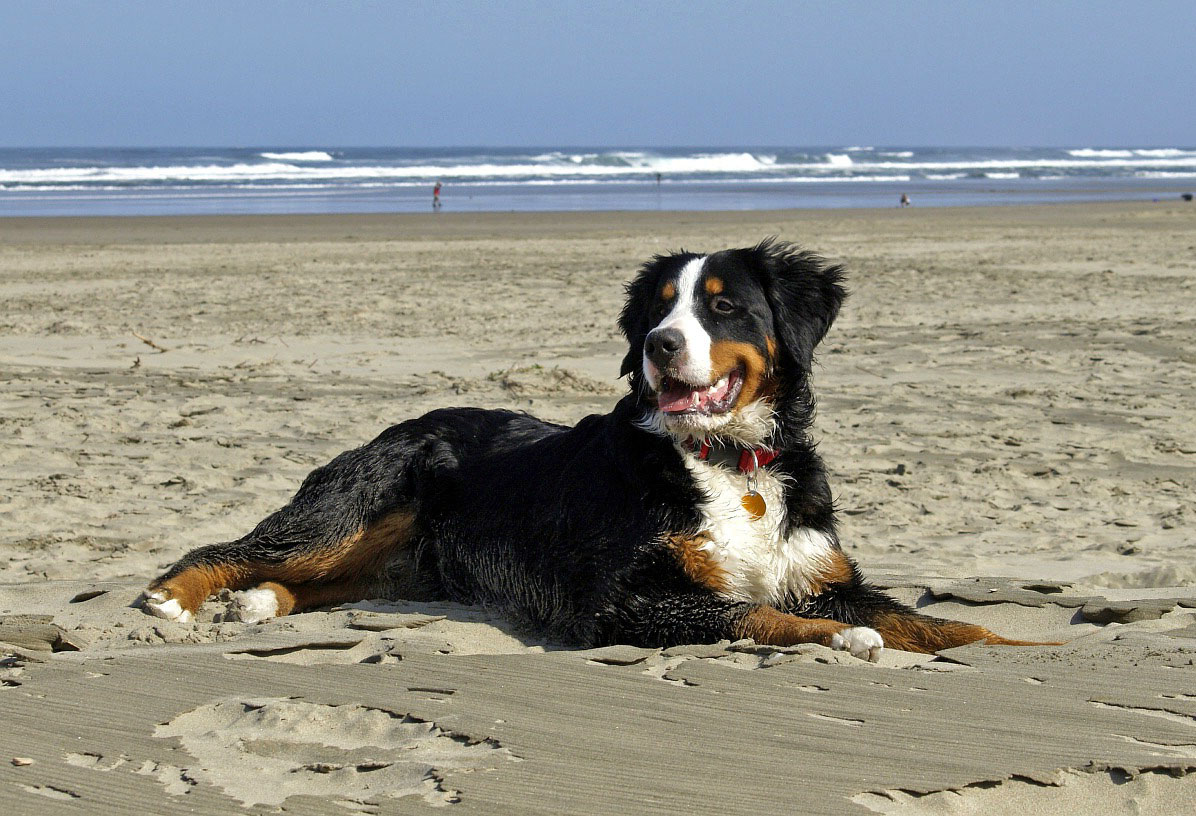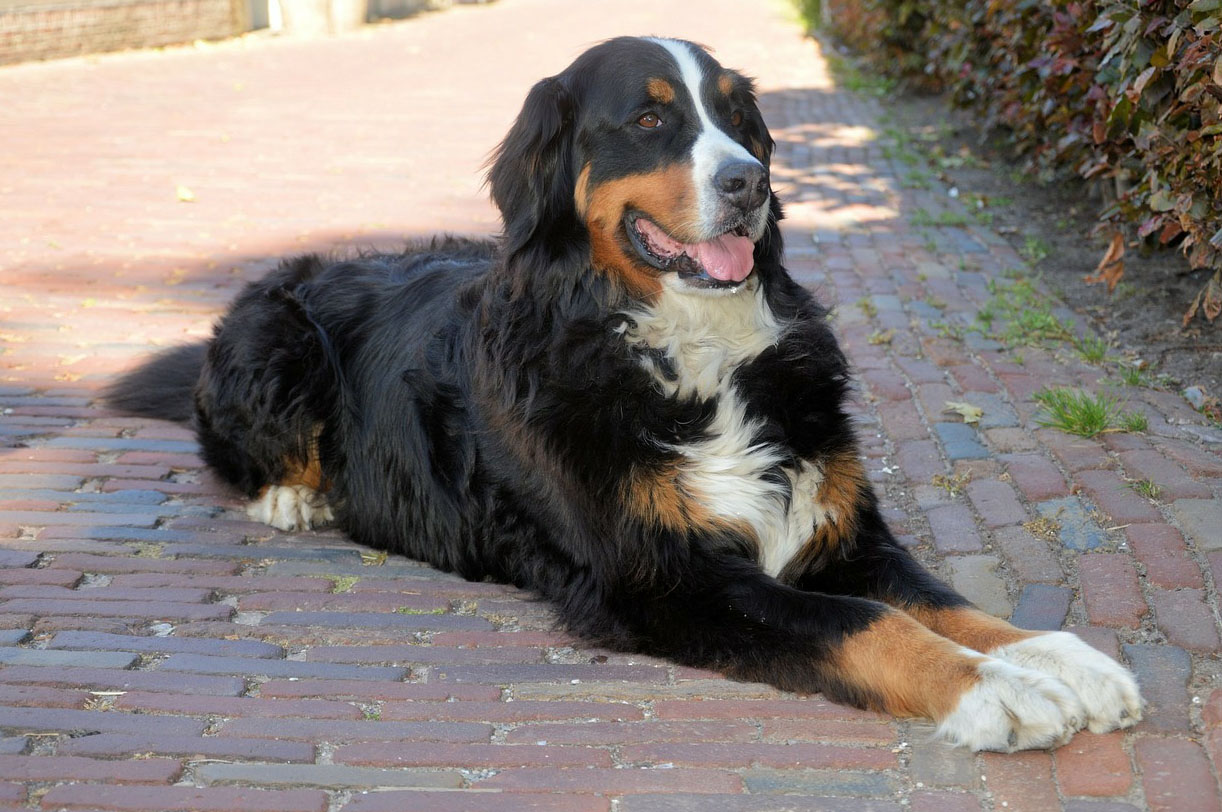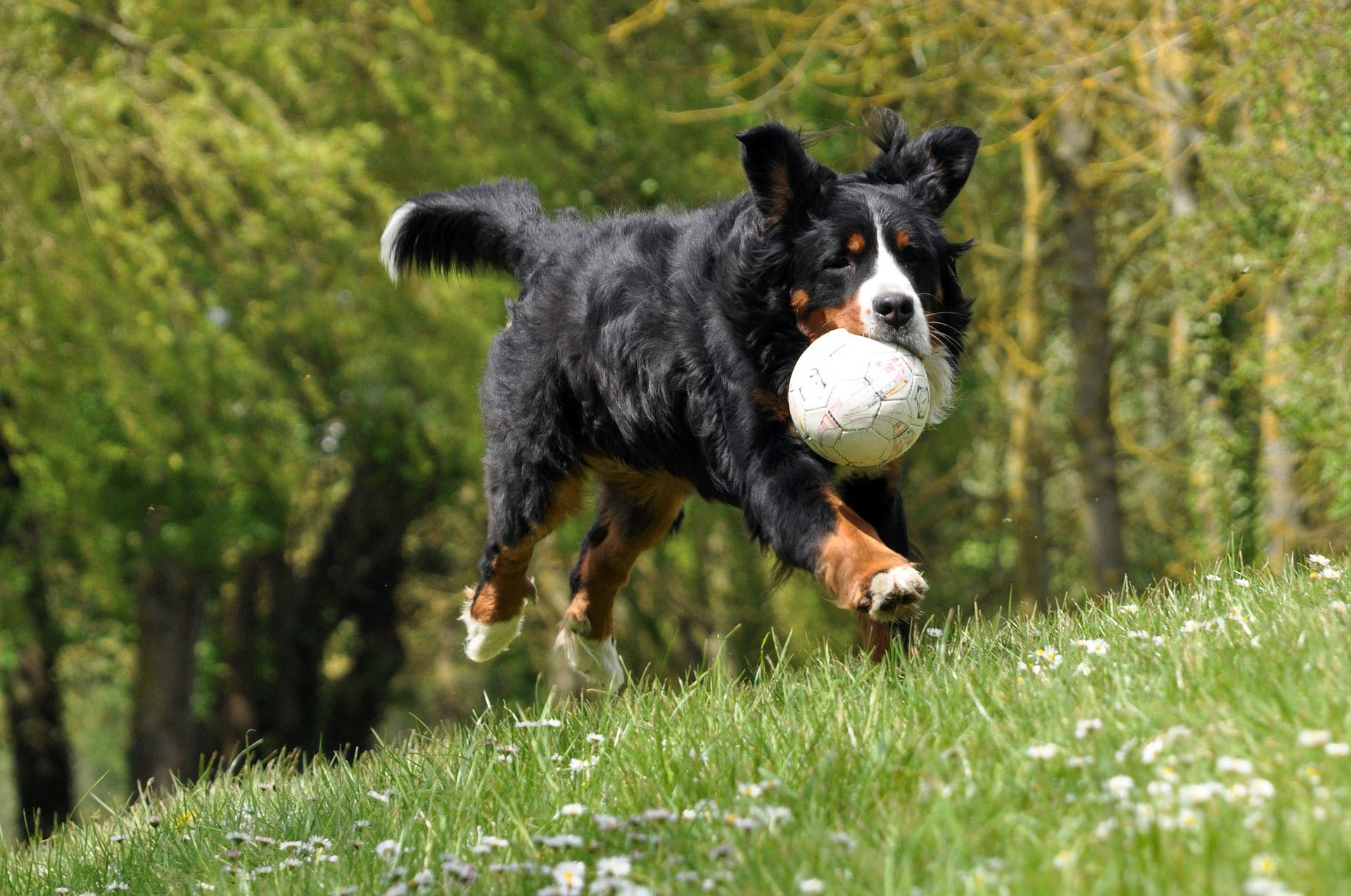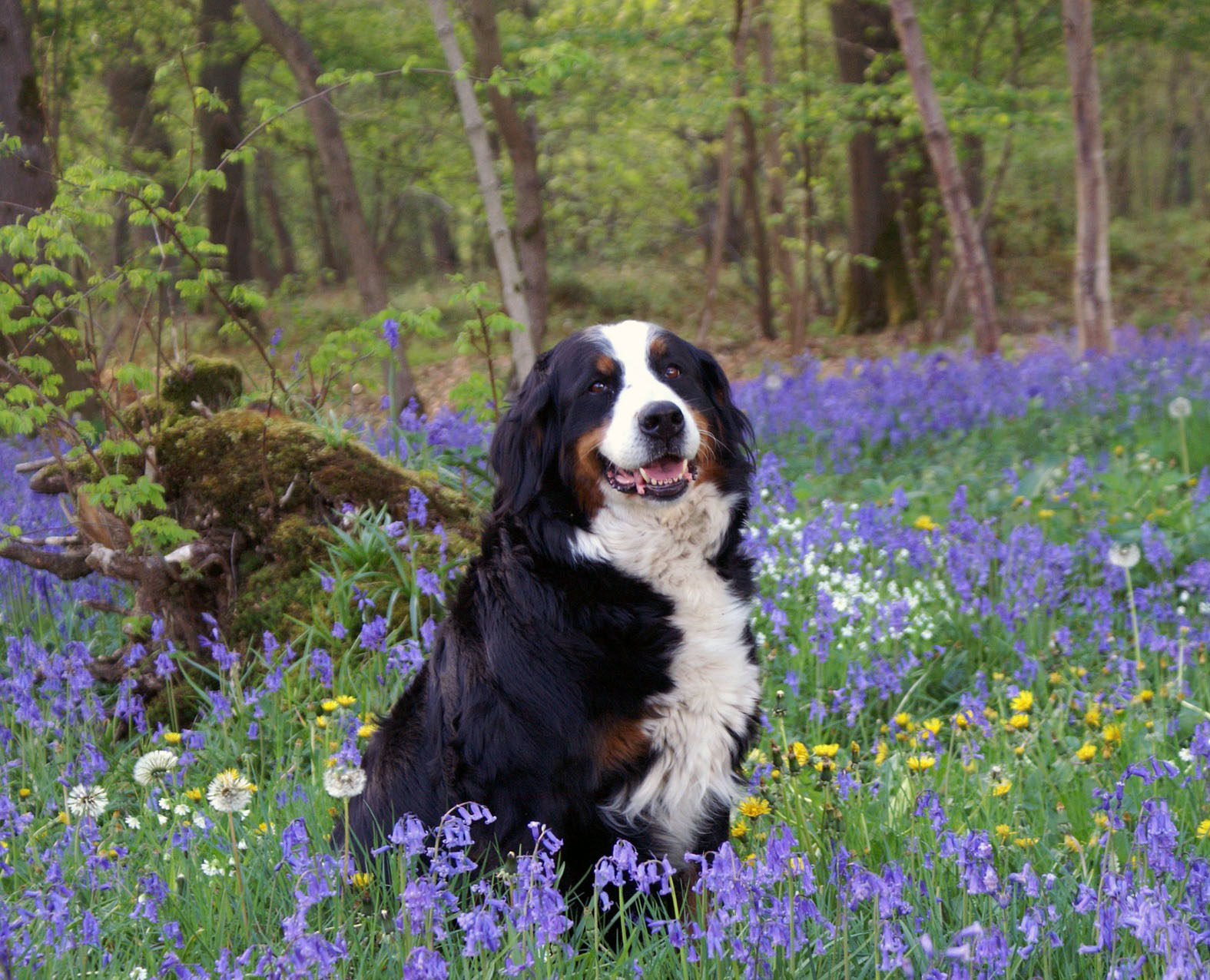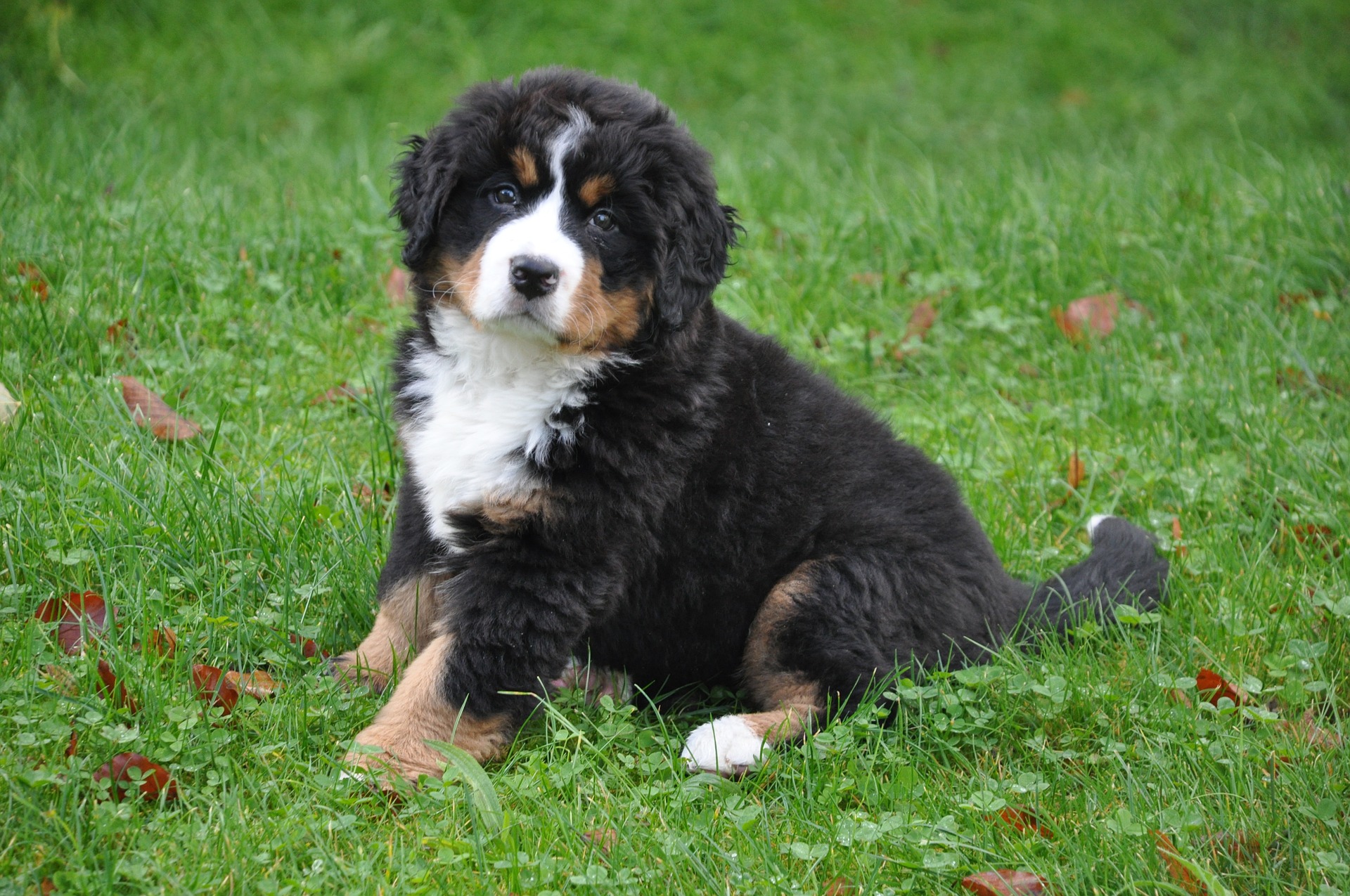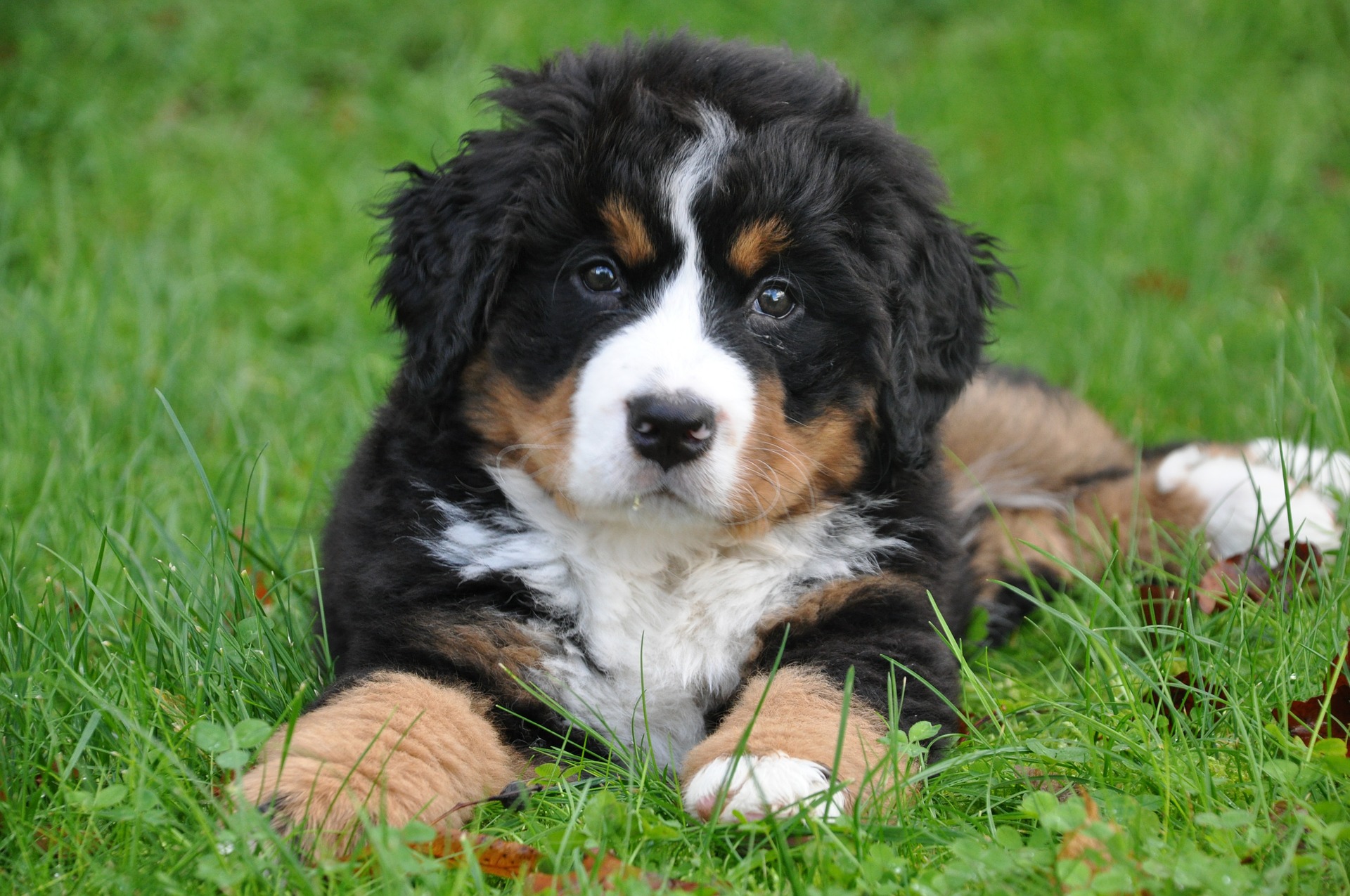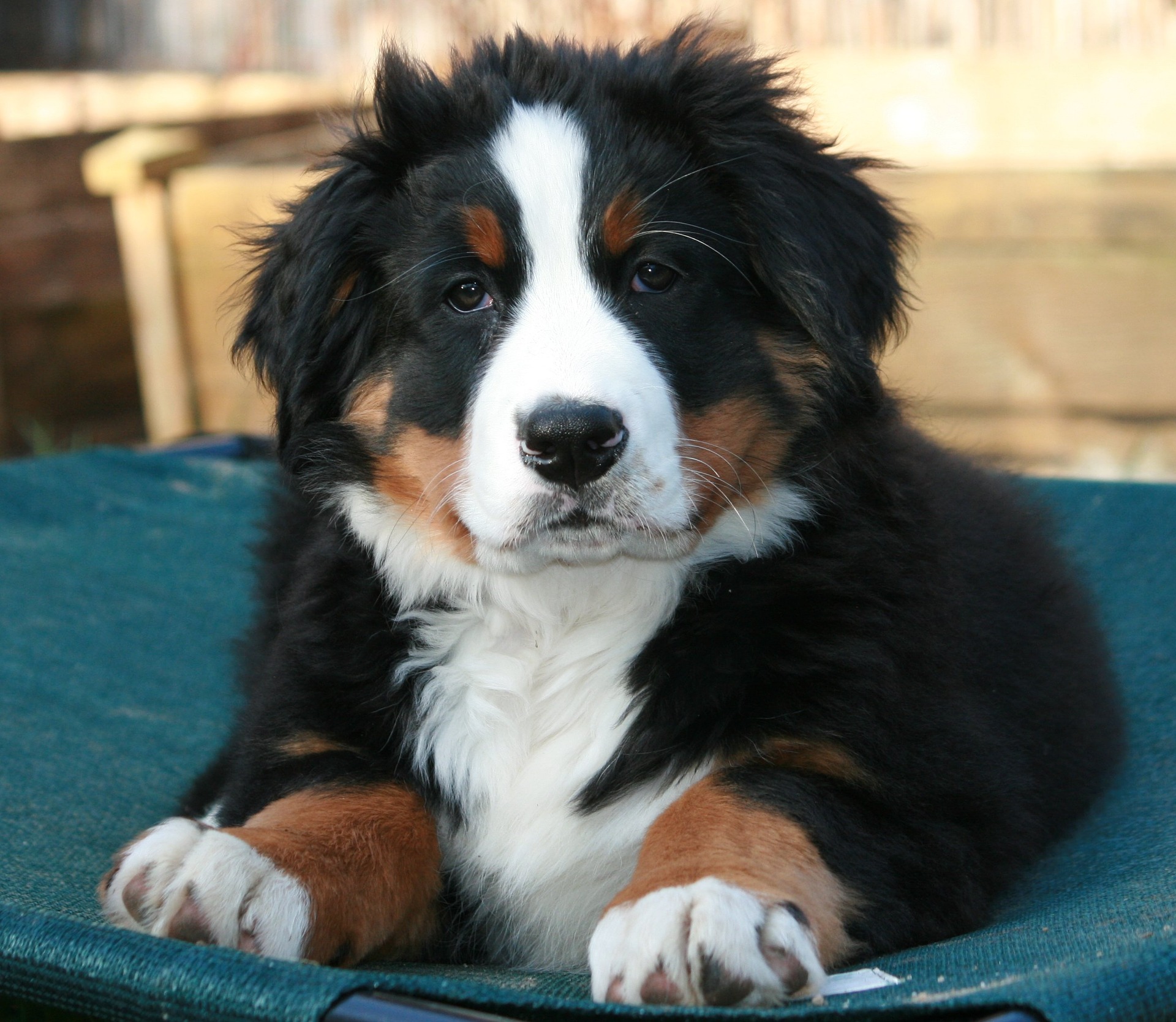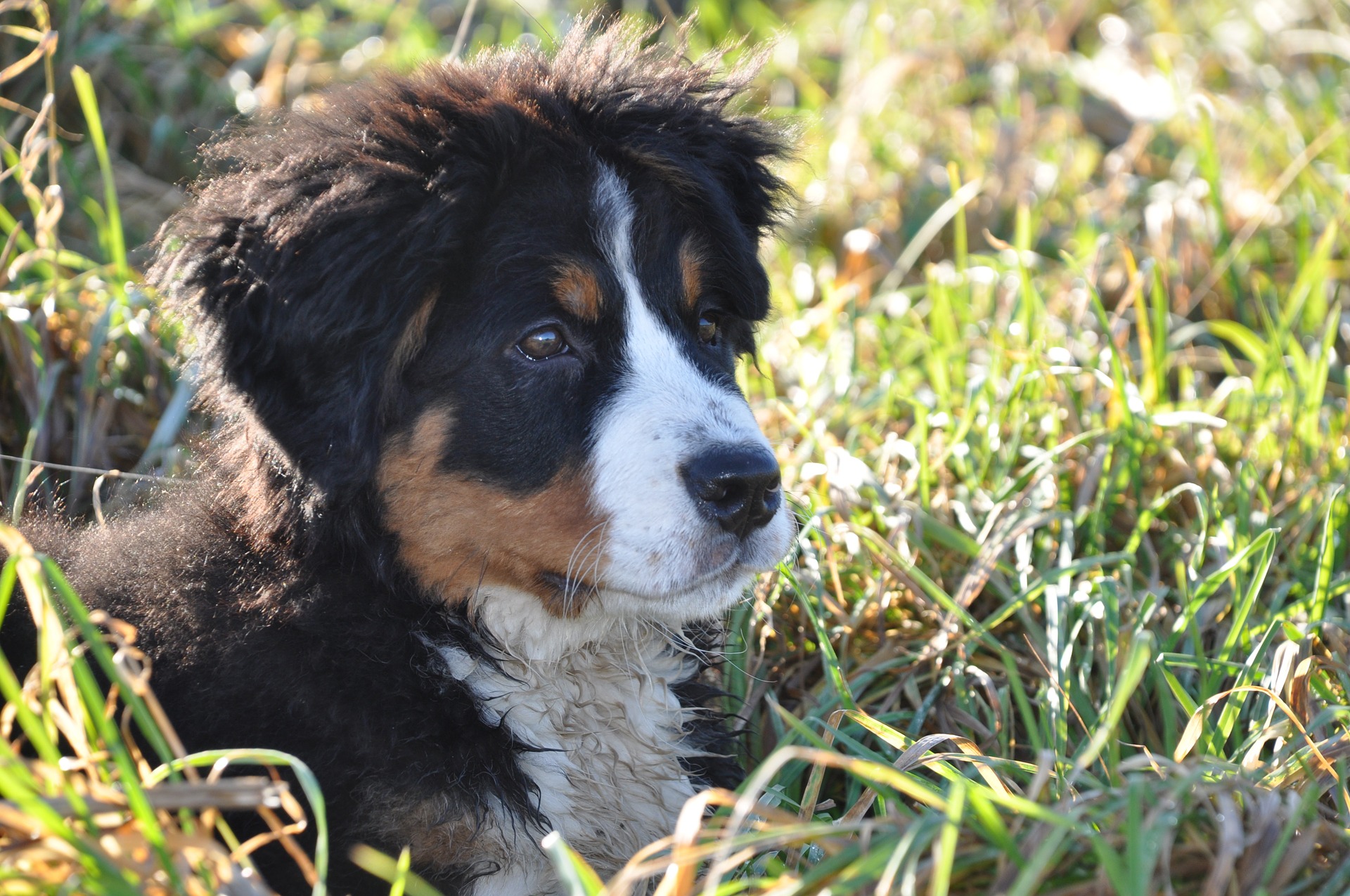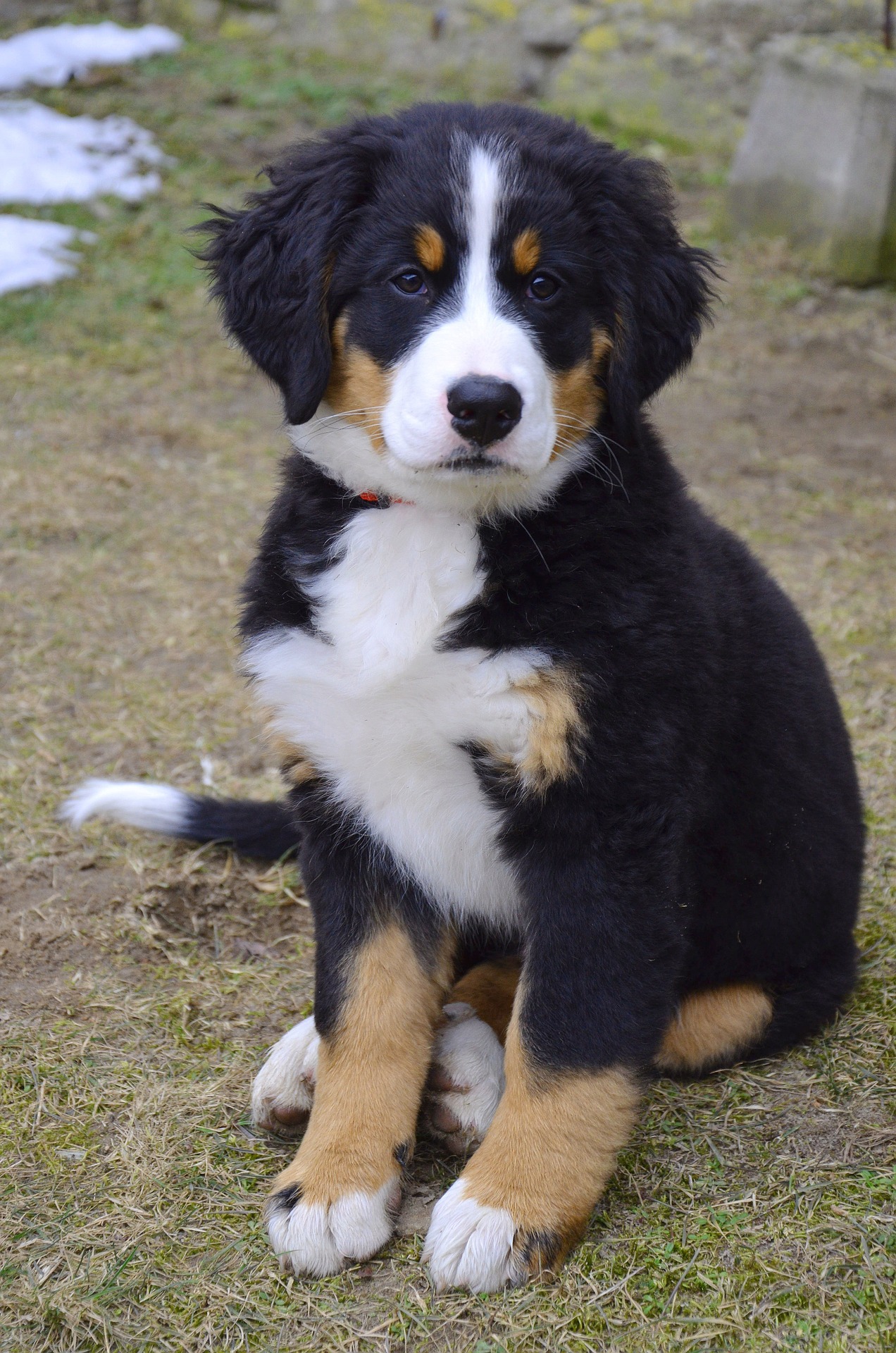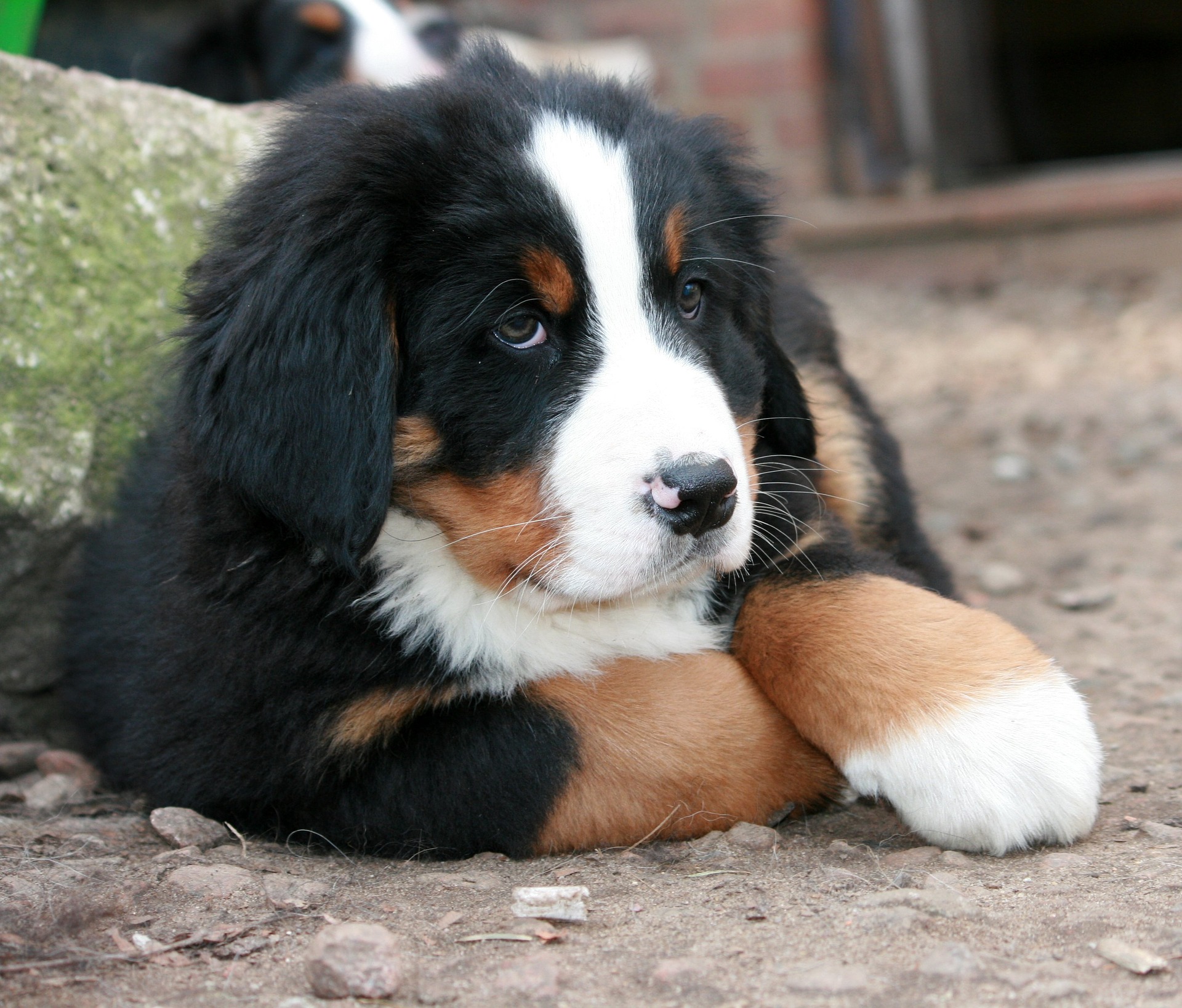The Bernese Mountain Dog, often lovingly referred to as the “Bernie,” is a majestic breed known for its striking appearance and gentle temperament. Originally hailing from the Swiss Alps, these dogs have captured the hearts of countless dog enthusiasts worldwide.
In this comprehensive guide, we will delve deep into the world of Bernese Mountain Dogs, exploring their history, characteristics, care requirements, and more. Whether you're considering adding one to your family or simply curious about these magnificent canines, read on to discover all you need to know.
History and Origins of the Bernese Mountain Dog
Table of Contents
The captivating history of the Bernese Mountain Dog offers a captivating glimpse into the heart of Switzerland. These magnificent canines have a lineage deeply rooted in the country's past, with their origins reaching back more than 2,000 years to the time of the Roman invasion of Switzerland. During this period, these dogs were selectively bred for their remarkable skills, initially serving as invaluable assets on Swiss farms.
The Bernese Mountain Dogs were cherished for their diverse abilities, ranging from herding cattle to hauling carts and vigilantly safeguarding the homesteads nestled amidst the picturesque Swiss Alps. Over the course of several centuries, these dogs underwent a remarkable transformation.
Through the meticulous process of selecting and refining desirable traits, they gradually evolved into the beloved and iconic Bernese Mountain Dogs we recognize today. This transformation was largely driven by the necessity for them to excel as indispensable working dogs within the challenging Alpine region, adapting to the rugged terrain and demanding tasks that defined their role in Swiss agriculture.
Physical Characteristics
Size and Build
Bernese Mountain Dogs boast an impressive and robust physique. Typically, males of this breed measure between 25 to 27.5 inches (63 to 70 cm) at the shoulder, while their female counterparts are slightly smaller, ranging from 23 to 26 inches (58 to 66 cm) in height. In terms of weight, these dogs usually fall within the range of 70 to 115 pounds (32 to 52 kg).
Coat and Color
One of the defining features that make Bernese Mountain Dogs stand out is their opulent tricolored coat. Their fur is comprised of a dense double coat, with a striking jet-black base. Adorning this deep black canvas are rich rust-colored markings, which elegantly embellish their cheeks, legs, and chest. In harmonious contrast to these dark hues, crisp white patches adorn their chest, face, and paws, creating a stunning and distinctive pattern.
Face and Expression
The face of a Bernese Mountain Dog is a window into their warm and friendly disposition. Their expressive brown eyes radiate kindness, while a sleek black nose adds to their charm.
Their ears are medium-sized, triangular in shape, and thoughtfully positioned high on their head, contributing to their alert and engaging appearance. Combined, these facial features create an endearing expression that captures the hearts of dog lovers around the world.
Temperament and Personality
Affectionate Nature
Bernese Mountain Dogs are celebrated for their deeply affectionate and sociable temperament. Their love for human companionship knows no bounds, and they have an innate ability to forge profound connections with their families. These dogs thrive on the warmth of human interaction, making them not just pets but cherished members of the family.
Gentle Giants
Don't be deceived by their imposing size; Bernese Mountain Dogs are the epitome of gentle giants. Their immense stature is matched by their gentle and patient demeanor, making them exceptionally well-suited for households with children. These dogs display remarkable patience and tolerance, even in the face of youthful exuberance. Their innate ability to interact harmoniously with children renders them ideal family pets, capable of providing not only affection but also a sense of security.
Loyal and Protective
Loyalty runs deep in the veins of Bernese Mountain Dogs, and they naturally assume the role of protectors for their loved ones. While they are not typically aggressive, they possess a keen sense of vigilance. When they sense potential threats or unfamiliar situations, they may use their powerful bark to alert their owners. This protective instinct underscores their commitment to safeguarding their family's well-being, further solidifying their role as beloved companions and guardians.
Sociable and Friendly
Bernese Mountain Dogs are social butterflies by nature. Their warm and outgoing personality extends not only to their human family members but also to other pets and even strangers. These dogs often greet newcomers with a wagging tail and a friendly demeanor, making them wonderful additions to social gatherings and community events.
Calm and Easygoing
Despite their considerable size, Bernese Mountain Dogs have a calm and easygoing disposition. They are not known for high-energy antics and are content to lounge and relax indoors with their family. This serene temperament makes them well-suited for households seeking a more laid-back companion.
Intelligent and Trainable
These dogs possess an impressive level of intelligence and are eager to please their owners. This combination of smarts and a willingness to learn makes them highly trainable. With proper training and positive reinforcement, Bernese Mountain Dogs can excel in obedience and various dog sports.
Training and Socialization
Early Socialization
The foundation of a well-rounded Bernese Mountain Dog begins with early socialization. This vital process is instrumental in nurturing their confidence and adaptability as adults. To achieve this, expose them to a diverse range of people, animals, and environments during their formative months. This exposure helps mitigate potential shyness or fearfulness, ensuring they grow up to be well-adjusted and socially confident dogs.
Positive Reinforcement Training
When it comes to training Bernese Mountain Dogs, positive reinforcement techniques shine as the most effective approach. These dogs have a natural inclination to respond positively to praise, treats, and affection. Utilizing these rewards as part of their training regimen reinforces good behavior and encourages them to continue learning and growing.
Consistency and Patience
Bernese Mountain Dogs, though affectionate and eager to please, can exhibit a touch of stubbornness at times. In such moments, a consistent and patient training approach is paramount. Maintaining a calm and steady demeanor during training sessions helps establish a sense of trust and cooperation between you and your bernese mountain dog life span. It's essential to remember that their large size and gentle nature require a gentle hand and plenty of patience to guide them toward becoming well-behaved companions.
Early Exposure to Various Environments
In addition to interacting with diverse individuals and animals, exposing your Bernese mountain dog size to various environments is crucial. Different settings, such as urban streets, parks, and rural landscapes, can help them become adaptable and comfortable in different situations. This exposure aids in reducing potential anxiety or discomfort when faced with new places.
Obedience Training for Safety
Given their substantial size and strength, obedience training is not just a luxury but a safety necessity for Bernese Mountain Dogs. Teaching them basic commands like “sit,” “stay,” and “come” is essential for ensuring they can be controlled in various situations, whether at home, on walks, or in public spaces.
Socializing with Other Dogs
Besides introducing them to various animals, providing opportunities for your Bernese Mountain Dog to interact with other dogs is beneficial. These social interactions can help them develop good canine manners, improve their communication skills, and ensure they feel comfortable in the company of their fellow four-legged friends.
Health and Lifespan
Common Health Issues
As with any breed, Bernese Mountain Dogs are susceptible to specific health concerns. These include:
- Hip Dysplasia: A condition where the hip joint doesn't develop properly, potentially leading to pain and mobility issues.
- Elbow Dysplasia: Similar to hip dysplasia but affecting the elbow joint, it can cause lameness and discomfort.
- Bloat (Gastric Torsion): This is a serious and life-threatening condition where the stomach fills with gas and twists on itself. Immediate veterinary attention is crucial.
- Certain Cancers: Bernese Mountain Dogs are predisposed to various types of cancer, such as mast cell tumors and osteosarcoma. Regular check-ups and early detection are essential for managing these conditions effectively.
- Heart Issues: Some individuals may be prone to heart problems, including valve disease or cardiomyopathy. Regular cardiac evaluations are advisable.
Lifespan
The typical lifespan of a Bernese mountain dog lifespan ranges from 7 to 10 years, though some may live slightly longer with proper care. Maximizing their longevity involves several key factors:
- Proper Nutrition: Feeding a well-balanced diet appropriate for their age and activity level is essential. This helps maintain a healthy weight and minimizes the risk of obesity-related issues.
- Regular Exercise: Bernese Mountain Dogs benefit from moderate daily exercise to keep them fit and mentally stimulated. Exercise helps prevent obesity, supports joint health, and ensures their overall well-being.
- Routine Veterinary Check-Ups: Regular visits to the veterinarian are crucial for detecting and addressing health issues early. This includes vaccinations, dental care, and preventive measures against parasites.
- Genetic Screening: Responsible breeding practices involve genetic screening to reduce the risk of inherited diseases. When acquiring a Bernese Mountain Dog, consider working with reputable breeders who prioritize genetic health.
- Maintaining a Healthy Weight: Given their predisposition to joint problems, keeping your Bernese Mountain Dog at an appropriate weight is vital. Excess weight can exacerbate joint issues and shorten their lifespan.
- Environmental Comfort: Provide a safe and comfortable living environment. Adequate shelter, protection from extreme weather, and attention to their specific needs contribute to their overall health and longevity.
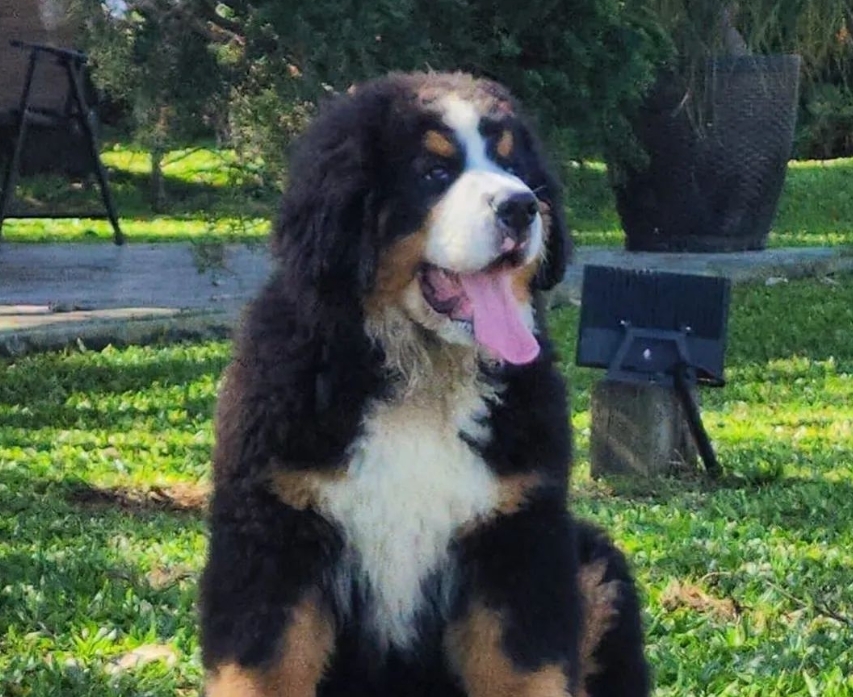
Grooming and Maintenance
Coat Care
Bernese Mountain Dogs boast a magnificent long, thick coat that demands dedicated care. To prevent matting and minimize shedding, it's essential to engage in regular grooming practices. Brushing their coat a few times a week is a good starting point, but during shedding seasons, which typically occur in the spring and fall, more frequent brushing is necessary. This helps remove loose hair, reduces the chances of tangles, and keeps their coat in prime condition.
Bathing
While not needed frequently, occasional baths are essential to keep your Bernese Mountain Dog clean and fresh. Aim to bathe them every two to three months, or when they've gotten particularly dirty. Be sure to use a dog-specific shampoo to maintain the natural oils in their coat.
Nail Trimming
Regular nail trimming is a crucial aspect of grooming. Overgrown nails can cause discomfort and even affect their gait. If you're uncertain about nail trimming, consult a professional groomer or your veterinarian for guidance. Proper nail maintenance contributes to their overall comfort and well-being.
Dental Care
Oral hygiene plays a pivotal role in the overall health of Bernese Mountain Dogs. Brushing their teeth regularly, ideally several times a week, is essential to prevent dental issues and maintain healthy gums and teeth. Additionally, provide dental chews or toys designed to promote dental health. These items not only entertain your dog but also help remove plaque and tartar buildup.
Ear Cleaning
Regular ear cleaning is necessary to prevent ear infections, a common issue in dogs with floppy ears like Bernese Mountain Dogs. Use a vet-approved ear cleaning solution and gently wipe their ears as needed. If you notice any signs of ear discomfort, such as redness or odor, consult your veterinarian promptly.
Eye Care
Check your Bernese Mountain Dog's eyes regularly for any signs of irritation, discharge, or redness. Keep the area around their eyes clean and free from debris. If you notice persistent issues, seek veterinary advice, as eye problems can sometimes indicate underlying health concerns.
Paw and Pad Care
Inspect their paws and pads after walks to ensure they are free from cuts, debris, or signs of injury. Keep the hair between their paw pads trimmed to prevent matting and discomfort.

Nutrition and Diet
Balanced Diet
Caring for your Bernese Mountain Dog's well-being begins with a well-rounded and balanced diet. These dogs have specific nutritional requirements, which may evolve as they age. Consulting your veterinarian is paramount to determine the appropriate diet for your individual dog. They can advise on portion sizes, protein content, and specific brands that cater to your Bernese Mountain Dog's dietary needs. It's crucial to select high-quality dog food that provides the essential nutrients for their size, activity level, and overall health.
Protein Requirements
Protein is a critical component of their diet, aiding in muscle development and overall vitality. Opt for dog food formulas that offer a sufficient level of high-quality protein sources, such as lean meats and fish. Protein content should align with their age and activity level, with puppies requiring more protein than adults.
Weight Management
Maintaining a healthy weight is paramount for Bernese Mountain Dogs, given their susceptibility to joint issues like hip dysplasia. Excess weight can exacerbate these problems. To ensure your dog stays in optimal condition, pay careful attention to portion control. Avoid overfeeding and excessive treats, as these can lead to obesity. Engage in regular exercise to help manage their weight and keep their joints agile.
Fresh Water
Provide access to fresh and clean water at all times. Staying properly hydrated is essential for their overall health and digestion.
Special Dietary Considerations
Some Bernese Mountain Dogs may have specific dietary considerations or allergies. If you notice any adverse reactions to their food, such as skin issues or gastrointestinal distress, consult your veterinarian to identify potential allergens or sensitivities.
Age-Appropriate Feeding
As your Bernese Mountain Dog ages, their dietary needs may change. Puppies, adult dogs, and seniors have varying requirements for protein, fat, and other nutrients. Transition to age-appropriate formulas as your dog matures, and consult your veterinarian for guidance on any necessary dietary adjustments.
Regular Vet Check-Ups
Routine veterinary check-ups play a pivotal role in monitoring your dog's overall health, including their nutritional needs. Your veterinarian can assess their weight, body condition, and any specific dietary concerns during these appointments.
Exercise and Activity
- Daily Exercise: Bernese Mountain Dogs are inherently active and energetic companions, necessitating daily exercise to maintain their happiness and overall health. Devote a significant portion of your daily routine, ideally around 30 to 60 minutes, to providing them with ample physical activity. Engaging in brisk walks, jogging, hiking, or even interactive play sessions is essential to satisfy their need for exercise. These activities not only keep them physically fit but also help prevent obesity, a concern in larger breeds.
- Variety in Exercise: To cater to their dynamic nature, introduce variety into their exercise regimen. Incorporate activities like fetch, agility training, or swimming, as these can enhance their cardiovascular health and stimulate their senses. Exploring different environments and terrains during walks or hikes adds an extra layer of excitement to their routine.
- Mental Stimulation: Exercise for Bernese Mountain Dogs extends beyond the physical. Mental stimulation is equally crucial to their well-being. Engage their sharp minds with puzzle toys, interactive games, and obedience training. These activities not only keep them mentally sharp but also prevent boredom and destructive behavior.
- Socialization: Socialization is a vital component of their mental well-being. Expose your Bernese Mountain Dog to various people, animals, and environments to foster positive social interactions and build their confidence. This socialization helps them develop into well-adjusted and balanced companions.
- Adaptation to Age and Health: As your Bernese Mountain Dog ages, their exercise needs may change. Puppies and young adults require more vigorous exercise, while seniors benefit from gentler activities to protect their joints. Be attentive to their individual health conditions and adapt their exercise routine accordingly.
- Consistency: Consistency in exercise and mental stimulation is key. Establish a regular schedule that your dog can rely on, as they thrive on routine. Consistent exercise and mental engagement contribute to their contentment and prevent behavioral issues associated with excess energy.
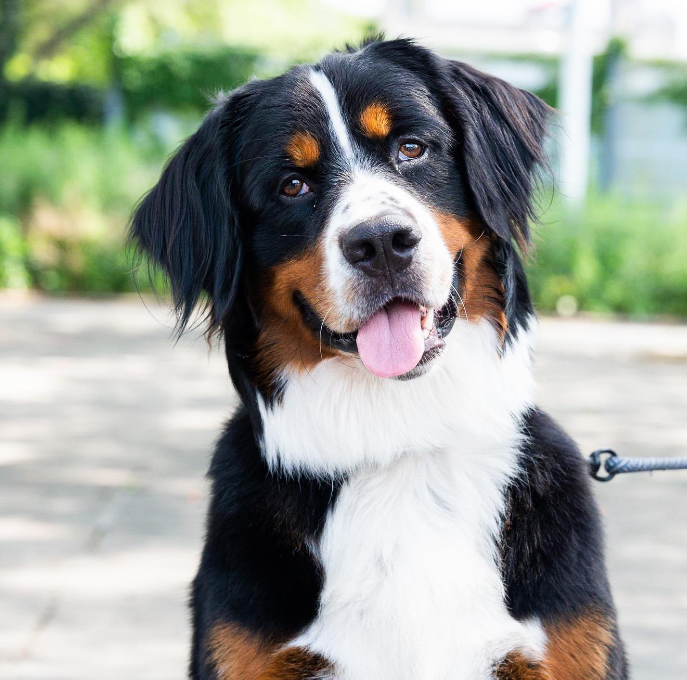
Choosing a Bernese Mountain Dog
Adoption vs. Breeder
When embarking on the journey to bring a Bernese Mountain Dog into your life, you have the choice between adoption and working with a breeder. Adoption from a rescue or shelter can be a rewarding experience, providing a loving home to a dog in need. These dogs often come with a history, and you can offer them a fresh start. However, if you opt for a breeder, it's imperative to conduct thorough research. Choose breeders who prioritize the health and well-being of their dogs, following ethical breeding practices. Verify their credentials, inquire about health clearances, and ensure they provide a nurturing environment for their puppies.
Puppy or Adult Dog
The decision between adopting a puppy or an adult Bernese Mountain Dog hinges on your lifestyle, preferences, and circumstances. Puppies are a bundle of joy but require significant time, patience, and training. You'll be instrumental in their early development and socialization. Adult dogs, on the other hand, may already have some training and socialization. They often adapt more quickly to a routine and can be an excellent choice for individuals or families seeking a companion with a known temperament.
Considerations for Adoption
- History: Ask the shelter or rescue for any available information about the dog's background, including past experiences and behavioral traits.
- Temperament: Spend time interacting with the dog to assess their temperament and compatibility with your family and lifestyle.
- Health: Inquire about the dog's health history and any medical needs. Ensure they are up-to-date on vaccinations and have been spayed or neutered.
- Training: Find out if the dog has received any training or behavioral evaluations. This information can help you gauge their readiness for integration into your household.
- Lifestyle Match: Evaluate whether the dog's energy level, exercise needs, and personality align with your daily routines and preferences.
- Long-term Commitment: Remember that adopting a Bernese Mountain Dog is a long-term commitment that may span a decade or more. Be prepared for the responsibilities and joys that come with canine companionship.
Conclusion
In my heart, the Bernese Mountain Dog represents more than just a breed; it embodies a history steeped in the Swiss Alps and a future filled with love and companionship. Their tricolored coat and warm temperament create a captivating blend of beauty and affection.
The journey of raising a Bernese Mountain Dog is a labor of love, from the early days of training and socialization to the commitment to maintaining their health and grooming. Whether you choose to adopt or work with a breeder, welcoming a Bernese Mountain Dog into your life is like opening a chapter of adventure, loyalty, and enduring joy.
It's an invitation to become part of their world, one where history and love intertwine, creating a tapestry of unforgettable moments that enrich your life in ways you can't imagine.
Sources
https://cvm.msu.edu/berners/home
https://www.ncbi.nlm.nih.gov/pmc/articles/PMC4960675/
